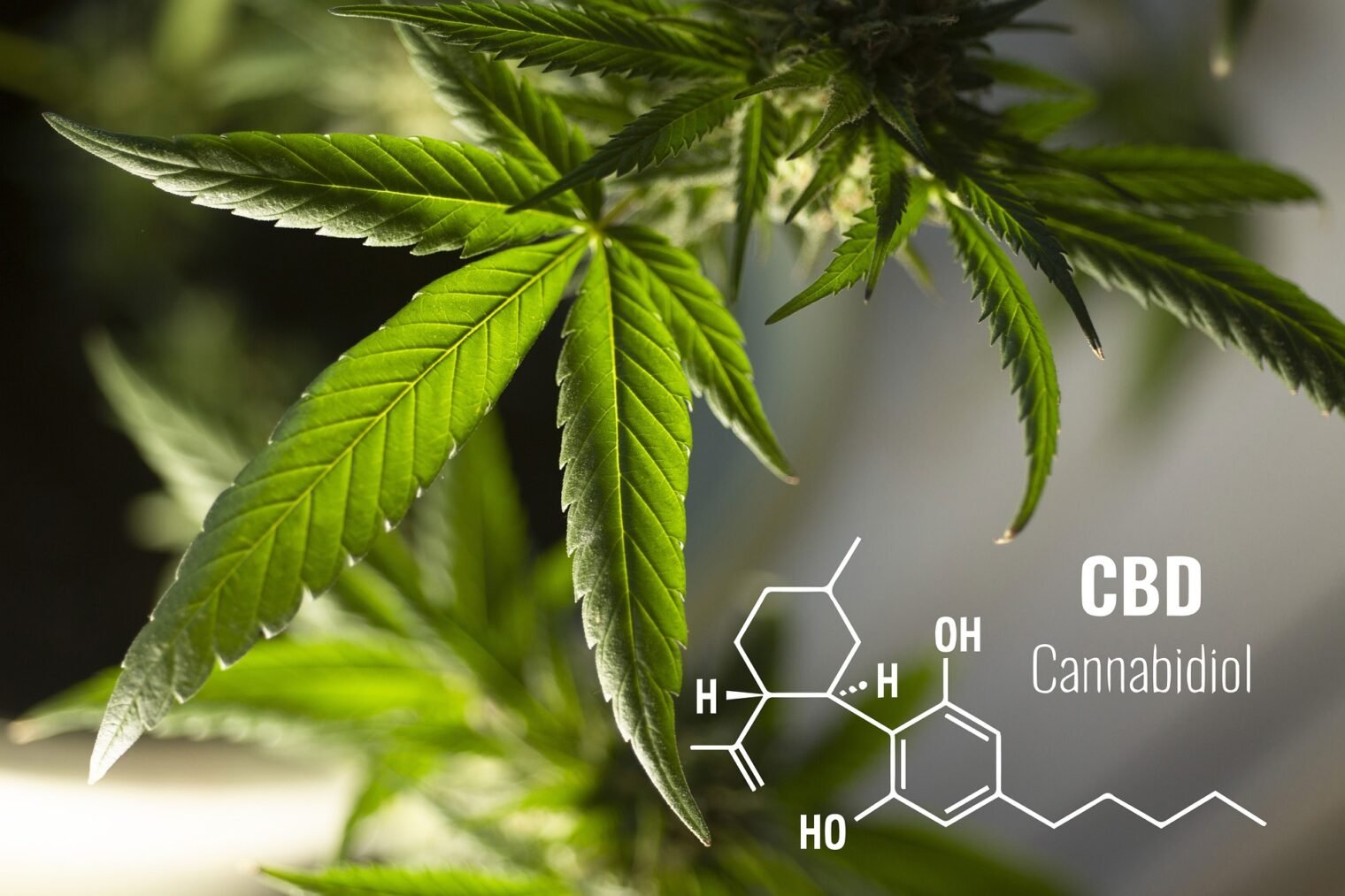What Are Full Spectrum CBD Products?

Table of Contents
Delve into the captivating realm of full spectrum CBD products and what it’s all about. CBD is a compound derived from the cannabis plant that has garnered substantial attention for its potential therapeutic effects.
This article uncovers the intricate workings of the endocannabinoid system (ECS) and how CBD interacts with it, shedding light on the physiological and cognitive processes it regulates.
Discover the concept of the entourage effect, highlighting the synergistic interplay between different compounds in the cannabis plant and its implications for the therapeutic potential of full spectrum CBD products.
Full Spectrum CBD products: Key Takeaways
– Full spectrum CBD products interact with the endocannabinoid system (ECS) to regulate physiological and cognitive processes.
– Activating the ECS with full spectrum CBD may provide pain relief, reduce inflammation, regulate mood, and improve sleep patterns.
– The entourage effect of full spectrum CBD enhances its therapeutic potential by synergistically interacting with various compounds in the cannabis plant.
– Scientific research on full spectrum CBD suggests potential benefits such as anti-inflammatory, analgesic, and anti-anxiety properties, and its potential use in treating conditions like epilepsy, PTSD, depression, and substance abuse disorders.
Understanding the Endocannabinoid System and Its Interaction With CBD
The current discussion topic of understanding the endocannabinoid system (ECS) and its interaction with CBD has generated a significant amount of research, with numerous studies highlighting the potential therapeutic benefits and mechanisms of action of CBD within the ECS.
The ECS is a complex system in the body that regulates various physiological and cognitive processes. It consists of endocannabinoids, receptors, and enzymes.
CBD products interact with the cannabinoid receptors CB1 and CB2 in the ECS, influencing their activity and interacting with other neurotransmitter systems. These interactions play a crucial role in the potential therapeutic effects of CBD.
Understanding the endocannabinoid system mechanisms and CBD receptor interactions is essential for harnessing the full potential of CBD for various health conditions. Further research is needed to explore these mechanisms in more detail and develop evidence-based guidelines for the use of CBD within the ECS.
Benefits of Activating the Endocannabinoid System with Full Spectrum CBD
While research is ongoing, preliminary studies suggest that activating the endocannabinoid system with full spectrum CBD may offer potential benefits such as:
– Pain relief
– Reduced inflammation
– Improved mood
– Neuroprotective effects
– Enhanced sleep patterns
Full spectrum CBD has been found to interact with cannabinoid receptors in the endocannabinoid system, including CB1 and CB2 receptors. By activating these receptors, full spectrum CBD may help alleviate pain by reducing inflammation. Additionally, there is evidence to suggest that full spectrum CBD can modulate immune function, potentially leading to improved immune response.
However, further research is needed to fully understand the mechanisms behind these effects and to determine the optimal dosing and administration methods for full spectrum CBD.
Overall, while promising, more studies are required to establish the efficacy and safety of full spectrum CBD products for pain relief and immune function.
The Entourage Effect and Full Spectrum CBD Products
An understanding of the entourage effect is crucial when examining the potential benefits of full spectrum CBD. The entourage effect refers to the synergistic interaction of various compounds in the cannabis plant.
Full spectrum CBD products contain a variety of these compounds, including cannabinoids, terpenes, and flavonoids. This combination of compounds is believed to enhance the therapeutic potential of CBD and contribute to its enhanced efficacy. Research suggests that full spectrum CBD may have greater therapeutic effects and improved symptom relief compared to isolated CBD.
Additionally, the entourage effect may increase bioavailability and reduce side effects. However, further scientific research is needed to fully understand and validate the synergistic benefits of the entourage effect in full spectrum CBD products.
Scientific Research on CBD Products
Scientific research is currently exploring the potential therapeutic applications and health benefits of full spectrum CBD through extensive studies and clinical trials.
Early studies suggest that full spectrum CBD may have anti-inflammatory, analgesic, and anti-anxiety effects. It has been found to have antioxidant properties that protect against oxidative stress.
Full spectrum CBD has shown promise in reducing the severity of seizures in epilepsy patients. Research is ongoing to determine its potential benefits for conditions such as PTSD, depression, and substance abuse disorders.
The antioxidant properties of full spectrum CBD make it a promising option for protecting against oxidative damage and promoting overall health. However, more research is needed to fully understand the mechanisms behind these effects and to establish evidence-based guidelines for its use.

Potential Therapeutic Applications of CBD Products
Extensive research and clinical trials are uncovering the potential therapeutic applications of full spectrum CBD. This compound, derived from the cannabis plant, interacts with the endocannabinoid system (ECS) in the body, which regulates physiological and cognitive processes. CBD activates cannabinoid receptors CB1 and CB2, influencing pain, mood, appetite, immune function, and sleep.
Studies suggest CBD products may provide pain relief, reduce inflammation, regulate mood, and have neuroprotective effects. This is because full spectrum CBD products contain a variety of cannabis compounds, leading to the entourage effect, which enhances therapeutic potential.
However, it is important to consider potential side effects and adhere to dosage guidelines. Further research is needed to establish standardized dosing and determine the long-term safety and efficacy of full spectrum CBD for various health conditions.
Additionally, the lack of regulation in the CBD industry highlights the need for standardized guidelines and quality control measures.
Exploring the Anti-Inflammatory Properties of CBD Products
Preliminary studies suggest that CBD products exhibits promising anti-inflammatory properties, making it a potential therapeutic option for various inflammatory conditions. Full spectrum CBD contains multiple cannabinoids, terpenes, and other beneficial compounds that work together to produce the entourage effect, enhancing its potential therapeutic benefits.
When exploring dosage recommendations, it is important to note that there is currently a lack of standardized dosing in studies, making it difficult to compare results. Future research should focus on determining optimal dosages for different conditions and individuals.
Investigating potential side effects is crucial in evaluating the safety profile of full spectrum CBD. While it is generally well-tolerated, some individuals may experience side effects such as fatigue, diarrhea, or changes in appetite. Long-term studies are needed to further assess the safety and potential risks associated with prolonged use of full spectrum CBD.
CBD and Its Impact on Mood Regulation
Full spectrum CBD products, in conjunction with its diverse range of cannabinoids and terpenes, has the potential to positively impact mood regulation.
The endocannabinoid system (ECS), which regulates physiological and cognitive processes, interacts with CBD to influence mood and mental well-being. Research suggests that CBD may reduce symptoms of anxiety and depression by modulating the activity of cannabinoid receptors CB1 and CB2 in the ECS.
Moreover, CBD’s neuroprotective effects on the brain and nervous system may contribute to improved mood regulation. Additionally, full spectrum CBD has been found to have potential benefits for stress management and cognitive function.
While further research is needed to fully understand the mechanisms and optimal dosing of full spectrum CBD, current evidence highlights its potential as a natural option for mood regulation and mental health support.
Neuroprotective Effects of CBD on the Brain
Emerging research suggests that the neuroprotective properties of CBD may offer promising therapeutic implications for preserving brain health. CBD products refers to a product that contains all the cannabinoids, terpenes, and other beneficial compounds found in the cannabis plant.
Studies have shown that CBD has the potential to protect the brain and nervous system from damage caused by oxidative stress, inflammation, and neurodegenerative diseases. This is due to its ability to reduce inflammation, act as an antioxidant, and modulate the activity of neurotransmitter systems.
Additionally, CBD has been found to enhance cognitive function and promote neurogenesis, the growth of new neurons in the brain.
While more research is needed to fully understand the neuroprotective benefits of full spectrum CBD, these initial findings hold promise for its potential use in preserving brain health and cognitive enhancement.
Improving Sleep Patterns with CBD Products
New research suggests that incorporating CBD into bedtime routines can help individuals regulate their sleep patterns and achieve a more restful night’s sleep. Sleep plays a vital role in overall health and well-being, and improving sleep quality is a priority for many individuals. Managing insomnia can be challenging, but CBD may offer a potential solution.
CBD interacts with the endocannabinoid system, which is involved in regulating sleep. It influences the activity of cannabinoid receptors and other neurotransmitter systems, potentially promoting relaxation and reducing anxiety. Full spectrum CBD products contain a variety of cannabis compounds, which may enhance their therapeutic effects through the entourage effect.
While scientific research on full spectrum CBD is still expanding, early studies suggest its potential benefits in improving sleep patterns. However, more research is needed to determine optimal dosing, long-term effects, and its effectiveness for different individuals and sleep disorders.
Limitations, Future Research, and Lack of Regulation in the CBD Industry
Conducting more clinical trials and establishing evidence-based guidelines are crucial steps in addressing the limitations, future research needs, and lack of regulation in the CBD industry.
As the popularity of CBD products continues to grow, it is essential to have reliable and standardized information regarding their safety, efficacy, and recommended usage. Currently, there is a lack of standardized dosing and difficulty in comparing results due to varying formulations and concentrations of CBD in different products.
Future research directions should focus on long-term use, safety, and efficacy of CBD, as well as its effectiveness for various conditions. Additionally, there is a need for more studies to determine specific benefits for different health conditions.
The CBD industry also requires standardized regulation and quality control measures to ensure consumer safety and product quality. By establishing industry standards and guidelines, we can ensure the consistent and reliable production and distribution of CBD products.
The Benefits of CBD Products
In conclusion, the potential therapeutic benefits of CBD products are vast and promising. By activating the endocannabinoid system, CBD has shown potential in areas such as pain relief, inflammation reduction, and mood regulation.
Additionally, the entourage effect highlights the importance of the synergistic interplay between compounds in the cannabis plant.
However, further research is needed to establish standardized dosing, long-term safety and efficacy, and evidence-based guidelines. Furthermore, the lack of regulation in the CBD industry emphasizes the necessity for standardized regulations and quality control measures to ensure consumer safety.


